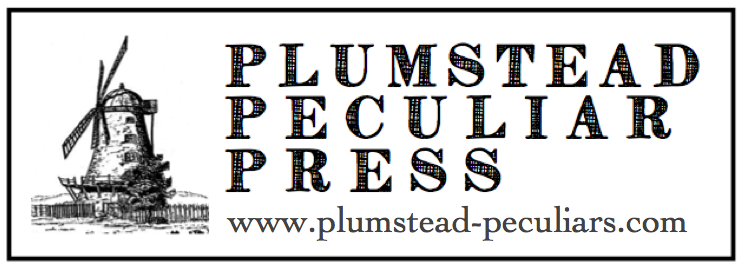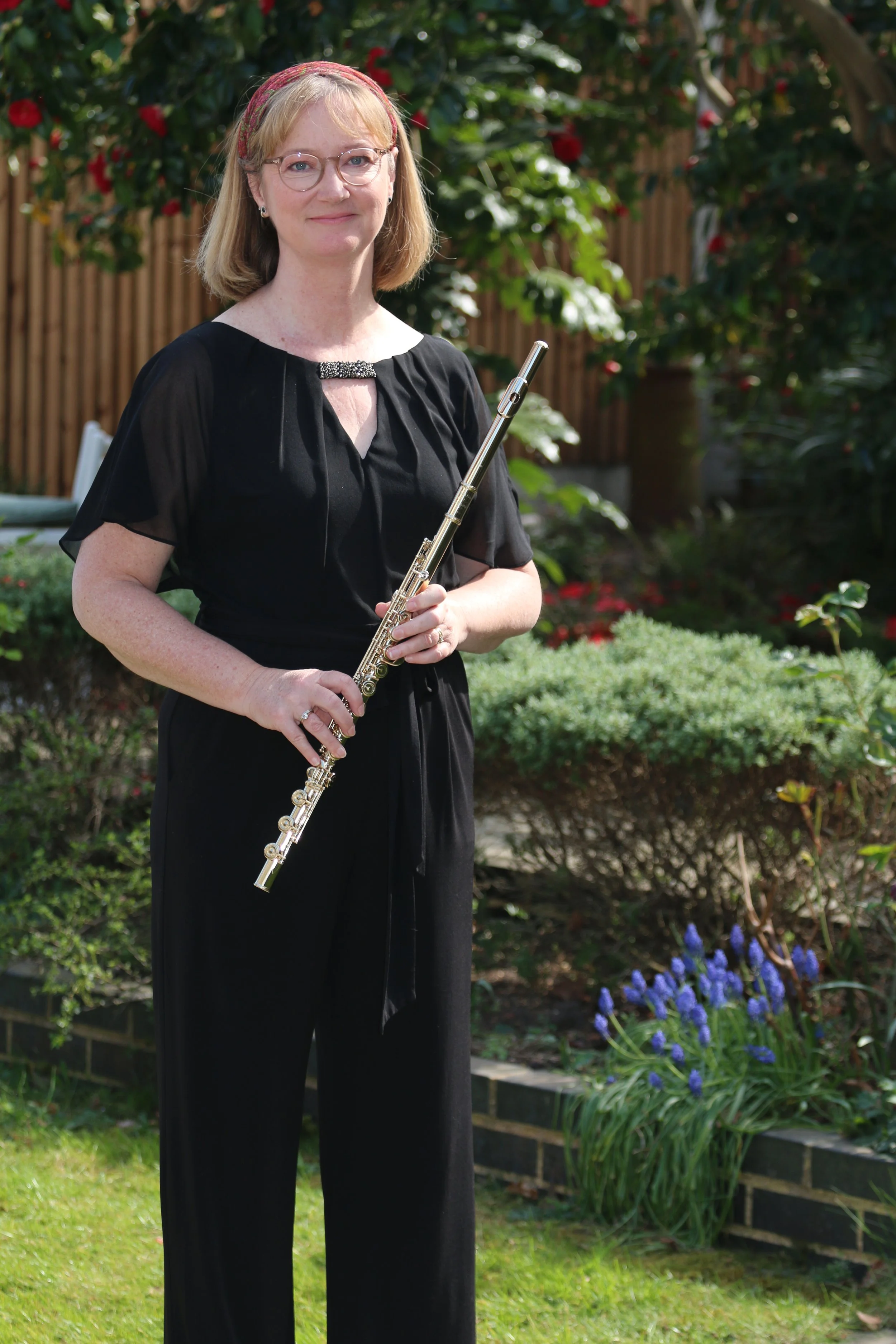Elizabeth Walker (flute) and Steven Devine (piano)
Carl Reinecke – ‘Undine’ Sonata (1882)
Allegro * Intermezzo * Andante * Finale
Mel Bonis – Andantino con moto from Sonate (1904)
Francis Poulenc – Sonata for Flute and piano (1957)
Allegretto malincolico * Cantilena * Presto giocoso
Carl Reinecke – ‘Undine’ Sonata (1882) This four movement Sonata for flute and piano, opus 167, was dedicated to flautist Wilhelm Barge (principal flautist in the Gewandhaus orchestra in Leipzig between 1867 – 1895 and one of the last proponents of the simple-system flute, publishing a flute method in 1880 for a 9 keyed flute). The composition cleverly captures so many elements contained in the novella, written by the German author, Friedrich de la Motte Fouque. The story was much loved in 19th century Germany. It is a typical dreamlike fairy-tale, full of spirits, fantasy, ancient forests, magical lakes, storms, Black Valleys, castles, handsome knights in shining armour and a wicked Uncle with the ever-present threat of death. It is rich in imagery and Romance and the central message of gaining a soul to enable an ability to “reflect the world within”, which can only be gained with loyal and lasting love, is inevitably doomed. “Tears rushed into Huldbrand’s eyes, and his breast surged and heaved, till, at last, breath failed him, and he fell back softly from Undine’s arms upon the pillows of his couch – dead”. (translation – W.L. Courtney).
Mel Bonis – Andantino con moto from Sonate (1904) was published by Demets in 1904 and dedicated to Louis Fleury, the famous flute teacher at the Conservatoire. The sonata, which in its entirety is a large-scale 4-movement work, completely captures many of the characteristics of the Louis Lot flute, lightness and light, the music has poetry and a late romantic-impressionistic atmosphere. It bridges the gap perfectly between the Reinecke and Poulenc.
Francis Poulenc – Sonata for Flute and piano (1957) This iconic flute piece was first performed by Jean-Pierre Rampal and Poulenc in the Strasbourg Festival on 18th June 1957 and is one of the finest pieces in the flute repertoire. Before the invention of the Louis Lot flute, patented by Theobald Boehm, music written for the flute tended to be light theme and variations. However, the flute was lifted into a new era by the brilliant capabilities of the Lot flute, coupled with teachers such as Taffanel, Gaubert, Rampal and Fleury, who all inspired composers such as Ravel, Debsussy and Poulenc to write music for this most expressive of instruments and this sonata capsulates these qualities.
Elizabeth is performing on a Louis Lot flute, no 5572 from 1893.
Elizabeth is a busy orchestral musician, performing concerts throughout Europe with, amongst others, the English Baroque Soloists. Elizabeth has recorded the Telemann Fantasias, Sonatas by J.S. Bach, and Schubert’s works for flute and piano "as perfect a demonstration of the modern wood flute's capabilities as one could wish to hear" review from BFS for Elizabeth's recording of Telemann's Fantasias. She has arranged music for flute and piano, including her highly successful ‘Four Strauss songs’ published at Alry Publications; and has written three award winning study books, ‘Baroque Flute Studies’ (Winner – Best Flute Method NFA 2015) and ‘Baroque Studies for Modern Flute’ (Winner – Best Flute Method NFA 2017) and most recently, ‘Melodies for Improving Baroque Tone and Interpretation’ available from wonderfulwinds.com.
Steven Devine combines a career as a conductor and director of orchestral, choral and opera repertoire with that of a solo harpsichordist and fortepianist. He is Conductor and Artistic Advisor of The English Haydn Festival; Music Director of New Chamber Opera, Oxford and Director of the Orchestra of the Age of Enlightenment’s “Bach the Universe & Everything” series.
On the concert platform he has directed Purcell, Blow, Bach, Handel and Mozart with the Orchestra of the Age of Enlightenment; Bach Easter Oratorio with the BBC National Orchestra of Wales; Haydn, Handel, CPE Bach, JC Bach, Ditterdorf and Viotti with the English Haydn Orchestra; Handel, Vivaldi and Porpora with Ann Hallenberg and Trondheim Barokk; Bach Christmas Oratorio with the Norwegian Wind Ensemble; Handel Solomon with Victoria Baroque Players, British Columbia and Handel Music for the Royal Fireworks with Arion Baroque Ensemble, Montreal; He has also directed programmes with the Academy of Ancient Music, Academie d’Ambronay, the Mozart Festival Orchestra and St Paul’s Chamber Orchestra,
Devine’s opera repertoire includes works by Purcell, Cavalli, Handel, Haydn and Mozart as well as rarities by Galuppi, Salieri and Cimarosa. His recordings include Dido & Aeneas with the Orchestra of the Age of Enlightenment and Sarah Connolly in the title role.
As a keyboard player, he is the Principal Keyboard Player with the Orchestra of the Age of Enlightenment and also the principal keyboard player for The Gonzaga Band, The Mozartists and performs regularly with many other groups around Europe. He has recorded over thirty discs with other artists and ensembles and made many solo recordings. His recording of Bach’s Goldberg Variations (Chandos Records) has received critical acclaim – including Gramophone magazine describing it as “among the best”. The complete harpsichord works of Rameau (Resonus) has received five-star reviews from BBC Music Magazine. Steven has recently released Bach’s Well-Tempered Clavier (“it’s the one of all I’ve heard in the past ten years that I am happiest to live with.” Early Music Review). He is currently engaged in recording the complete harpsichord works of Johann Ludwig Krebs, Bach’s favourite student.
Steven Devine was educated at Chetham’s School of Music before reading Music at St Peter’s College, Oxford. He was Director of Opera Restor’d from 2002-2010 and Kurator and Conductor of the Norwegian Wind Ensemble from 2016-2018.


